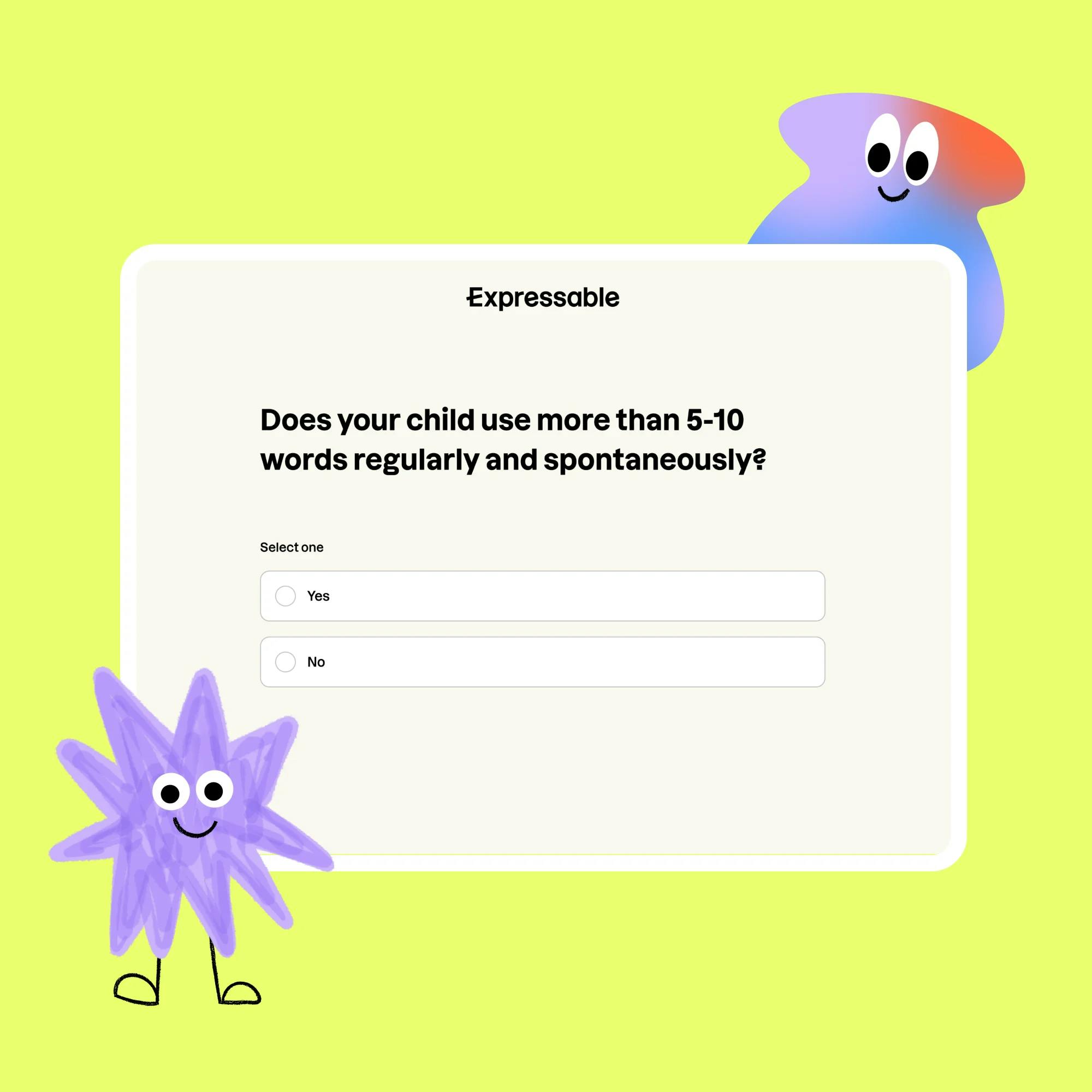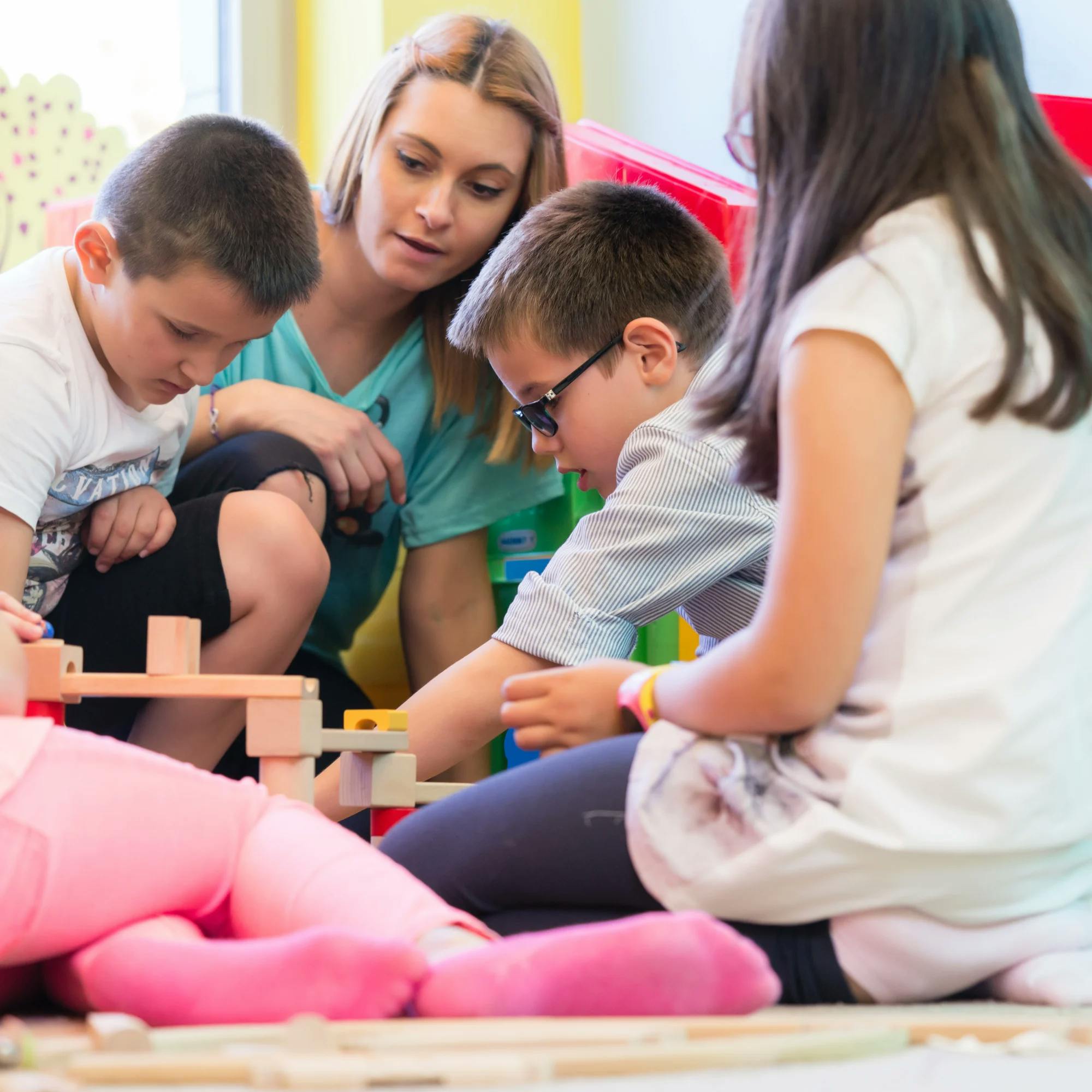
How Speech-Language Disorders Affect a Child’s Classroom Performance
 Abby Barnes, M.S., CCC-SLP
Abby Barnes, M.S., CCC-SLP
Language is the basis of communication. And it’s hard to underestimate just how essential it is to our daily lives.
Reading, writing, gesturing, listening, and speaking are all forms of language. We use language everyday to communicate our ideas to friends, family, peers, and colleagues.
This is why speech and language skills are absolutely essential to the social development and academic success of a child. Without a strong foundation in communication, children can struggle academically, experience low self-esteem, receive poor grades, and not set themselves up for future success.
Common communication disorders that can affect a child’s classroom performance include (but are not limited to):
Speech sound disorders: Difficulty pronouncing sounds
Language disorders: Difficulty understanding what they hear as well as expressing themselves with words
Cognitive-communication disorder: Difficulty with thinking skills including perception, memory, awareness, reasoning, judgment, intellect and imagination
How speech and language disorders affect learning
There are a number of ways speech and language disorders can affect a child’s success at school, including:
Difficult with language comprehension: Communication is key to a child’s ability to listen, speak, read, and write. However, children diagnosed with speech-language disorders often have difficulty processing verbal information. They may struggle to comprehend information that was presented, or even remember it at all--affecting their ability to follow instructions or complete assignments
Struggles with reading and writing: Language and verbal skills serve as the foundation for the development of reading and writing. In fact, research has shown that verbal skills are very influential on--if not necessary for--a child’s ability to read. Children must be able to associate sounds with letters, and then segment those apart from one another. In many cases, children with reading and writing problems also have trouble using language to communicate, think, and learn
Low self-esteem: As you can imagine, having a speech or language disorder can hurt a child’s confidence or belief in their abilities. For example, holding a meaningful conversion, socializing with peers, and speaking in public are life skills many children develop in the classroom. If a child doesn’t believe in their abilities, they may be held back in their social development
What are signs that a speech-language disorder is affecting my child’s ability to learn?
Children with communication disorders often perform at a poor or insufficient academic level. Signs you may notice at home or in the classroom include:
Not being able to read at grade level
Receiving poor grades or frequently being outpaced by their peers
Difficulty with testing and problem solving
Inability to hold a meaningful conversation
Difficulty expressing their thoughts through spoken or written language
Difficulty understanding or expressing language
Misjudging social cues
In many cases, the effects of a speech-language disorder can persist or worsen without appropriate interventions. This can affect a child’s future ability to succeed in school. For example, children who struggle to read and write may be held back an academic year. Additionally, children who struggle to process verbal information may be seen as ignoring their teacher or being defiant, which can lead to unnecessary punishment and be demoralizing for a child, discouraging future attempts to learn.


What should I do if I think my child has a speech or language delay?
Early interventions with children generally lead to better outcomes. If you suspect your child may have a speech or language delay, it's best to pursue an evaluation sooner rather than later. Developing speech and language skills before school starts will support better outcomes once a child enters the classroom.
When children start school, their progress is tracked and monitored by their teachers and school staff. Families or teachers may be the first to voice concerns and initiate a school evaluation. Diagnosis and treatment of children's communication problems can involve multiple people, including parents or caregivers, audiologists, psychologists, social workers, classroom teachers, special education teachers, guidance counselors, physicians, dentists, and nurses.


Including a speech-language pathologist, or speech therapist, in the evaluation process helps families know whether communication deficits are playing a role in a student’s academic performance. Speech therapists help children become effective communicators and problem-solvers, which leads to more successful and satisfying educational experiences and peer relationships.
Public schools in the U.S. are required to provide free and appropriate special education resources to students under the Individuals with Disabilities Education Act. If speech-language problems impact your child’s performance at school, evaluation and intervention should be initiated. However, schools may have limited resources, and families often search for additional support outside of school to help their child reach grade-level benchmarks. Insurance companies won’t cover speech-language therapy pertaining to academic goals--and paying out-of-pocket for private speech therapy can be challenging for many families.


How can online speech therapy help with classroom performance?
As mentioned above, a speech therapist can help diagnose and treat speech-language disorders that may be affecting your little one. If speech therapy has been recommended, working with an online speech therapist has several advantages:
Teletherapy is more affordable: Practices have to pay for a lot of expenses that aren’t directly related to patient care: facility costs, marketing, support staff, overhead, etc. With teletherapy, these cost savings are passed down to the customer.
Flexible, convenient scheduling: Instead of spending time traveling to and from in-person therapy sessions, patients can schedule and attend appointments from the comfort of their own home. You also have greater flexibility to schedule sessions on the dates that work best, and at the times you prefer (mornings, nights, or weekends).
Just as effective as traditional therapy: So long as your receive care from an experienced and licensed speech-language pathologist, there is no difference in quality of care between teletherapy and in-person therapy. A landmark study from Kent State University showed that there was no significant difference in scores between students who participated in teletherapy versus on-site therapy
How can Expressable help?
Speech therapy with Expressable is just like traditional therapy, but sessions are held online with video conferencing software that our clients can access from the convenience of their home. Expressable can offer incredible therapy at a fraction of the price because our therapists focus on serving families instead of dealing with long commutes and administrative tasks. Click here to find the right speech therapist for your child.
How Expressable Can Help
Concerned your child isn't reaching age-expected milestones? Looking for communication support from a professional? Expressable is a national online speech therapy practice serving children and adults. We treat all major areas of communication and feeding, offer flexible hours including evenings and weekends, and accept most major health insurance plans. We’re proud to have earned more than 3,000 5-star reviews from our clients (4.9/5 average).
Our therapy model is centered on parent and caregiver involvement. Research proves that empowering caregivers to participate in their loved one’s therapy leads to better outcomes. That’s why we combine live, 1-on-1 speech therapy with personalized education and home practice activities for faster progress.
Communication is more than words. It’s how we share how we feel and show who we are. We’re here to help you or your child do just that.












